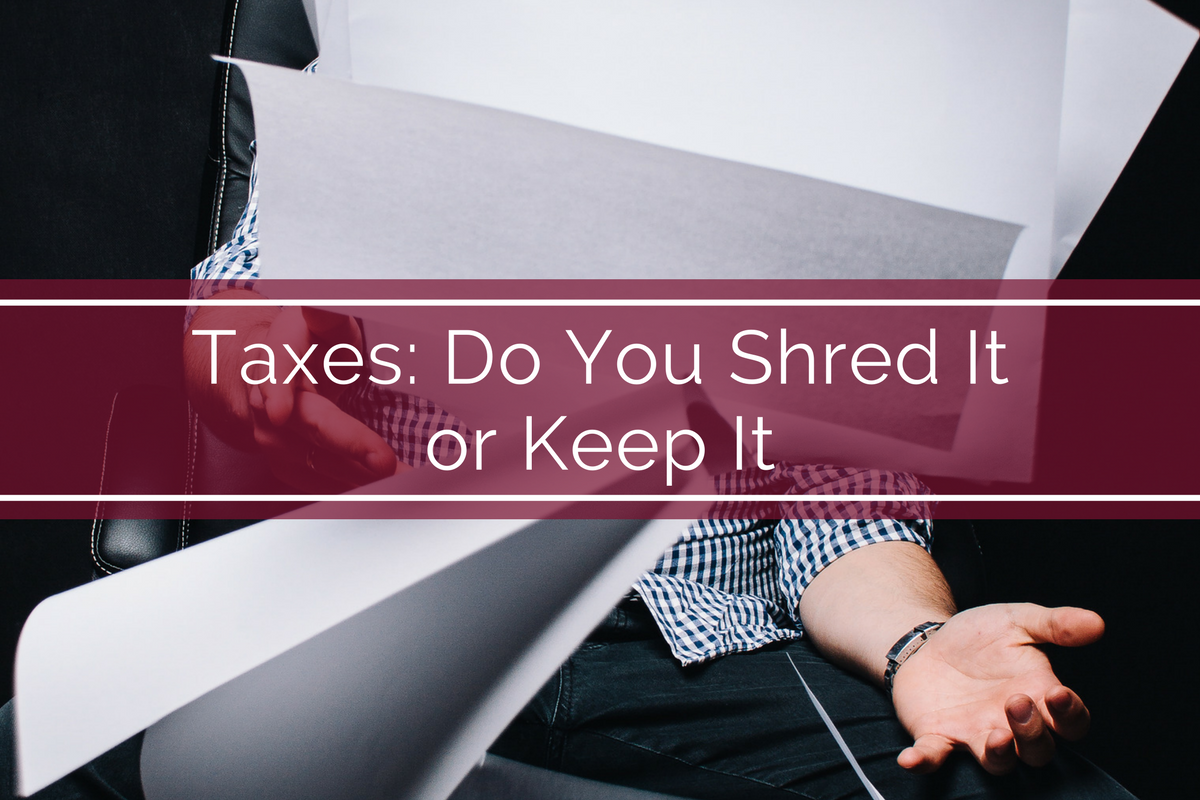
10 Apr Taxes: Do You Shred It or Keep It
Tax season is slowly dwindling down and you’re probably left with one major question– Do I need to save any documents? When it comes to your relationship with Uncle Sam, knowing what to shred or keep can be a tad confusing. These tips will help your tax season end smoothly and guide you when you’re questioning if you should shred it or keep it.
IRS Tax Return Forms- Keep It
You’ve paid your dues and cashed your refund check, so you must be done until next year, right? Not so much. It is crucial to save your tax return for at least three years in case of an audit. The IRS audits for at least the last three years. For example, after you’ve completed your taxes this year, you’ll want to save your returns until at least 2019. In some cases, if you’re suspected of omitting 25% of your gross income, the IRS can audit up to seven years of taxes.
Tax Related Forms- Keep It
Thinking about tossing your W-2, 1099, investment records or mileage log? Think again. Keeping supporting documents for each year’s taxes is a smart move. In case of an audit, it’ll be important to have documents for your case. Any documents you used for your taxes that year should be saved.
Credit Card Documents- Shred It
Keeping credit card documents is typically a personal decision. These documents are not necessary for taxes, but you may want to hold on to them in case you need to return an item, or dispute charges. If you do decide to keep these documents, it should only be stored up to a year.
Paycheck Stubs- Shred It
You’ll want to hold onto your paycheck stubs for a little bit, but just long enough to validate your income on your returns. Once you’ve established accuracy between your tax documents and paycheck stubs, toss them in the shredder.
How to Store Your Documents
Congrats, you’ve managed to sift through your pile of tax documents and sent the unnecessary forms through the shredder. Now it’s time to organize. You can choose the traditional route and organize your paperwork by year in a filing cabinet or digitally store documents on the cloud. Many people choose to utilize both techniques for extra dependency.
Tax season and all its required documents can be a little overwhelming. That’s why it’s important to get a jump on organizing your paperwork before it starts piling up on your desk. If questions or concerns arise, check out our other tax related blogs, or pop in and chat with us.





No Comments